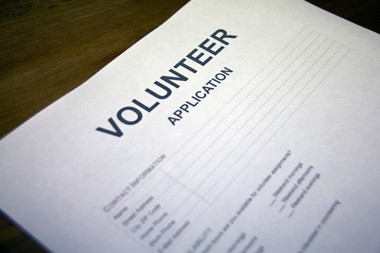Intro
Reporting Requirements
Types
Talking to
a Child
Making the
Report
Conclusion
Reporting Requirements
Reporting requirements vary slightly for a few groups. This training has been adapted specifically for UW-Extension volunteers and employees. Click the UW-Extension logo below to continue.

Physical Abuse
Define
Recognize
Practice
Listen to audio
Physical abuse is defined as physical injury inflicted on a child by other than accidental means.
That's the definition. Now we are going to look at it more closely to understand what it means.
Click on the questions below.
You can download a printable copy of the questions shown below. (PDF)
TIP: Don't worry about whether the injury might be serious enough to meet the definition of physical abuse. That's hard for a reporter to tell, and is something that CPS or law enforcement can determine.
Physical Abuse Scenarios

1) You are a volunteer with the University of Wisconsin-Extension. Your position includes recruiting students for their educational programs. As part of the recruitment process, you invite students to participate in your career readiness program. The program includes organized activities such as the ropes challenge leadership course. During the ropes course, you notice one of the children has multiple bruises of different shades of color on the back of his legs and scars on his forearm that resemble cigarette burns. When you ask him about the marks, he confides that his stepmother caused the injuries. He says he can handle it, and he doesn't want you to do anything about it because it would only "make things worse."
Are you required to report?
Correct: You are required to report.
The program participant is a child, and there is reasonable cause to suspect that he has been physically abused: multiple injuries, different stages of healing, injuries that appear to not be accidental in origin, and a boy who says that his stepmother caused the injuries. You cannot honor his request to do nothing; you need to report. However, it would be important to tell CPS or the law enforcement agency to which you report that the boy is worried about retaliation from his stepmother because of the report.
Incorrect: You are required to report.
The program participant is a child, and there is reasonable cause to suspect that he has been physically abused: multiple injuries, different stages of healing, injuries that appear to not be accidental in origin, and a boy who says that his stepmother caused the injuries. You cannot honor his request to do nothing; you need to report. However, it would be important to tell CPS or the law enforcement agency to which you report that the boy is worried about retaliation from his stepmother because of the report.

2) You volunteer for the University of Wisconsin-Extension and read a personal statement from a 17-year-old camp counselor applicant discussing an "obstacle" he has overcome. The applicant states that he was diagnosed with ADHD as a child and that his father often "got physical" with him to the point that his mother would threaten to call the police if he didn't stop. He stated the worst time was when his father punched him in the mouth and he needed stitches where his tooth went through his lip.
Are you required to report?
Correct: You are required to report.
The applicant is 17 years old — still a minor — and has described injuries that are serious and that were not accidental in their cause. Because EO#54 does not limit your reporting responsibilities to a timeframe within which injuries must have occurred, it does not matter that the applicant used the past tense. The applicant has also stated that the father's violence against him occurred "often" and at a level where his mother threatened to call the police. All of this indicates a significant level of violence in the home.
Incorrect: You are required to report.
The applicant is 17 years old — still a minor — and has described injuries that are serious and that were not accidental in their cause. Because EO#54 does not limit your reporting responsibilities to a timeframe within which injuries must have occurred, it does not matter that the applicant used the past tense. The applicant has also stated that the father's violence against him occurred "often" and at a level where his mother threatened to call the police. All of this indicates a significant level of violence in the home.

3) You are a UW-Extension 4-H Stem volunteer and you give a presentation at a local library program at the request of your child who participates in the summer reading program. When leaving the program you see one of the youth get picked up by his mother. As a youth gets into the car, you hear the mother speaking angrily to the boy and then see her intentionally burn the child's arm with a cigarette.
Are you required to report?
Correct: You are not required to report.
Were you surprised by this answer? The reason the answer is No is because you are not required to report under EO#54: this is not something you've seen or heard about while in your volunteer role. Could it be abuse? Absolutely: you have witnessed someone intentionally inflicting an injury on a child. Can you report even though you are not required to? Absolutely: the protections that are present in the law are there for voluntary reporters as well as mandated reporters.
Incorrect: You are not required to report.
Were you surprised by this answer? The reason the answer is No is because you are not required to report under EO#54: this is not something you've seen or heard about while in your volunteer role. Could it be abuse? Absolutely: you have witnessed someone intentionally inflicting an injury on a child. Can you report even though you are not required to? Absolutely: the protections that are present in the law are there for voluntary reporters as well as mandated reporters.

4) You are a UW-Extension Master Gardener volunteer and you require participants to keep a journal and to write about suggested topics. You review journal entries periodically throughout the educational program. When reviewing one journal, you discover that, in response to a prompt about power differentials in relationships, 20-year-old Sarah has written that as a child she was physically abused by her father. When her dad got drunk, he'd get mean and beat Sarah with a strap until she was black and blue. When you ask, she tells you she's the youngest, the last to leave home, and there are no other kids there now.
Are you required to report?
Correct: You are not required to report.
Sarah is an adult. And there are no other children in the home. Even though what she described would be physical abuse, there is no "child" to report about.
Incorrect: You are not required to report.
Sarah is an adult. And there are no other children in the home. Even though what she described would be physical abuse, there is no "child" to report about.

1) You are an ER doctor. A mother brings her toddler to the emergency room, very concerned about the pain her child seems to be experiencing in his leg. You have X-rays taken, which show the leg is broken. You ask her how the injury occurred, and she tells you that she was sliding down a park slide with her son on her lap and that immediately afterwards he complained of pain in the leg. The break you see in the X-rays is not an uncommon injury in toddlers whose caregivers slide with the child on their lap, as the adult's weight can jam the child's leg into the side of the slide, breaking it. You explain this to the mother, and she is stunned; she thought she was being careful and protective.
Are you required to report?
Correct: You are not required to report.
The injury is completely consistent with the explanation, so there is no reason to doubt the mother's explanation. The injury is accidental in cause, as the parent had no reason to know that sliding with the child was dangerous.
Incorrect: You are not required to report.
The injury is completely consistent with the explanation, so there is no reason to doubt the mother's explanation. The injury is accidental in cause, as the parent had no reason to know that sliding with the child was dangerous.

2) You are a police officer responding to a call from a mother that her son is out of control. Sixteen-year-old Andy and his parents were shouting at each other. He'd been grounded for defiant behavior but was intending to leave the house anyway to meet up with friends. He swore at his mother when she called the police, and his father blocked his way as he attempted to leave, saying "You don't talk to your mother that way" and "You'll do as you're told if you want to live in this house." Andy responded: "I'd have to be frickin' nuts to want to live here" and grabbed the doorknob. His father shoved him away from the door as hard as he could, and Andy hit his head against a bookcase, sustaining a fairly deep laceration to the skull. The father tells you he never intended to hurt his son that way.
Are you required to report?
Correct: You are required to report.
Andy has sustained a severe injury, and it was not accidental in cause, even though the father did not intend to cause the injury. A reasonable person would conclude that shoving someone very hard can result in injuries. It does not matter that the boy was very aggravating and testing his parents' patience. Teenage non-compliance is part of normal development, and parents are responsible to exercise emotional control.
Incorrect: You are required to report.
Andy has sustained a severe injury, and it was not accidental in cause, even though the father did not intend to cause the injury. A reasonable person would conclude that shoving someone very hard can result in injuries. It does not matter that the boy was very aggravating and testing his parents' patience. Teenage non-compliance is part of normal development, and parents are responsible to exercise emotional control.

3) A mom arrives at the day care center where you work to pick up 2-year-old Colton who is having a melt-down. The more the mom tries to put his winter clothing on, the more he fights and screams, and the angrier she gets. She jerks him around, forcing his arms through the sleeves and jamming his feet into his boots. Colton starts to cry hysterically and mom yells at him that she'll give him something to cry about. He is unable to calm down. She drags him across parking lot and throws him against the car. You can hear his head thud and hear her scream, "See what you made me do?" She throws him into his car seat and drives off, tires squealing.
Are you required to report?
Correct: You are required to report.
Even though you are not in a position to actually see injuries, there is reason to suspect that Colton might have sustained injuries to his head. The injuries cannot be considered accidental, as a reasonable person would conclude upon witnessing the mother's behavior toward Colton that it could result in injuries. Because the mom's behavior appears to be out of control and violent, there is also reason to suspect Colton could be subjected to additional injuries.
Incorrect: You are required to report.
Even though you are not in a position to actually see injuries, there is reason to suspect that Colton might have sustained injuries to his head. The injuries cannot be considered accidental, as a reasonable person would conclude upon witnessing the mother's behavior toward Colton that it could result in injuries. Because the mom's behavior appears to be out of control and violent, there is also reason to suspect Colton could be subjected to additional injuries.

4) When eight-year-old Jesse sits down at his desk in your classroom, you notice that he's trying not to cry. When you ask him what's wrong, he tells you that his dad gave him "a whoopin'" last night. You ask him what "a whoopin'" is, and he says that's when his dad hits him for being bad. When you ask, he says he was hit on his butt, that it doesn't hurt to sit down, and the bad thing he did was push his four-year-old sister down. Jesse says his dad told him to apologize to his sister, and he did, and his dad was happy he did, but sometimes he still feels sad when he thinks about it.
Are you required to report?
Correct: You are not required to report.
There are no indications of injuries, and the reason for the corporal punishment (hurting his little sister) does not indicate a father who is out of control or enjoys inflicting punishment. It is important to avoid making assumptions when hearing words like "whoopin'" and to find out what the child means when he says it, if possible.
Incorrect: You are not required to report.
There are no indications of injuries, and the reason for the corporal punishment (hurting his little sister) does not indicate a father who is out of control or enjoys inflicting punishment. It is important to avoid making assumptions when hearing words like "whoopin'" and to find out what the child means when he says it, if possible.
Make sure to visit all the tabs before continuing the course!

